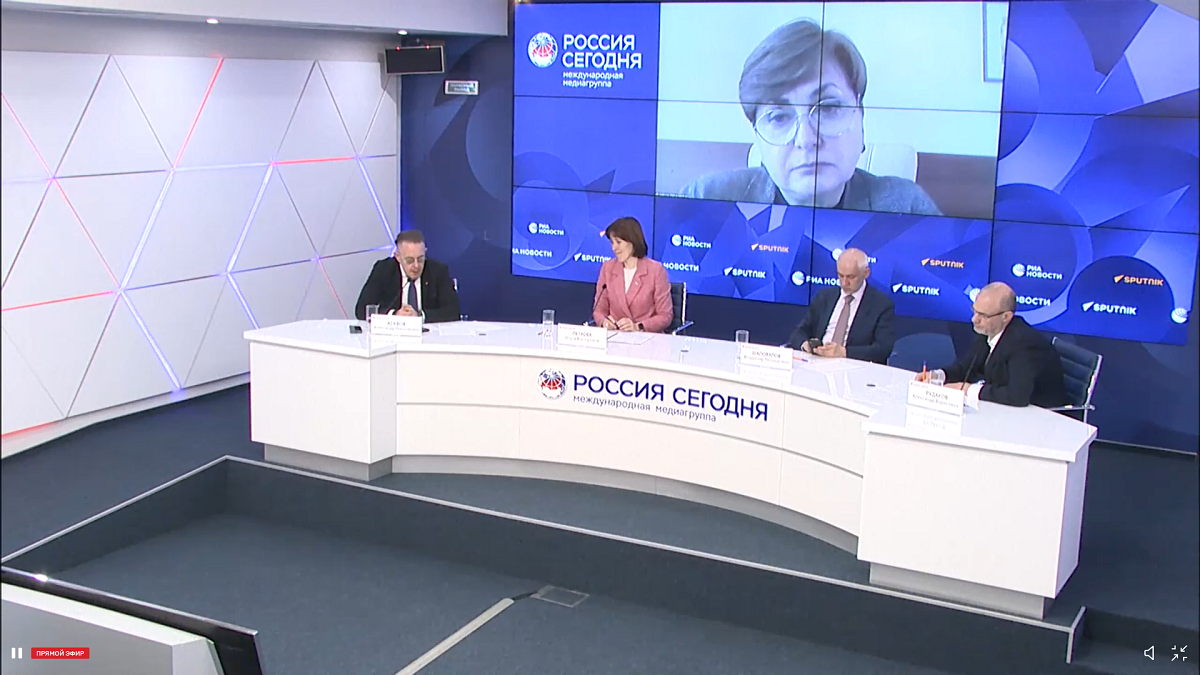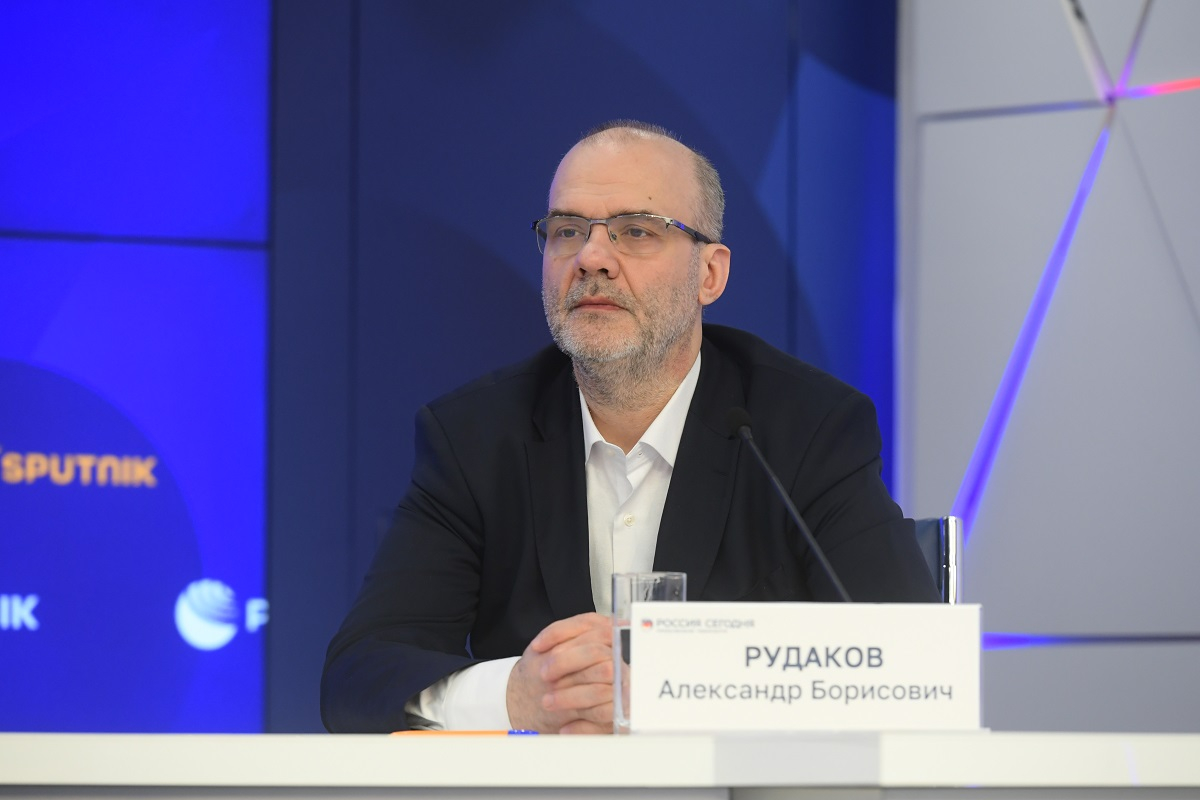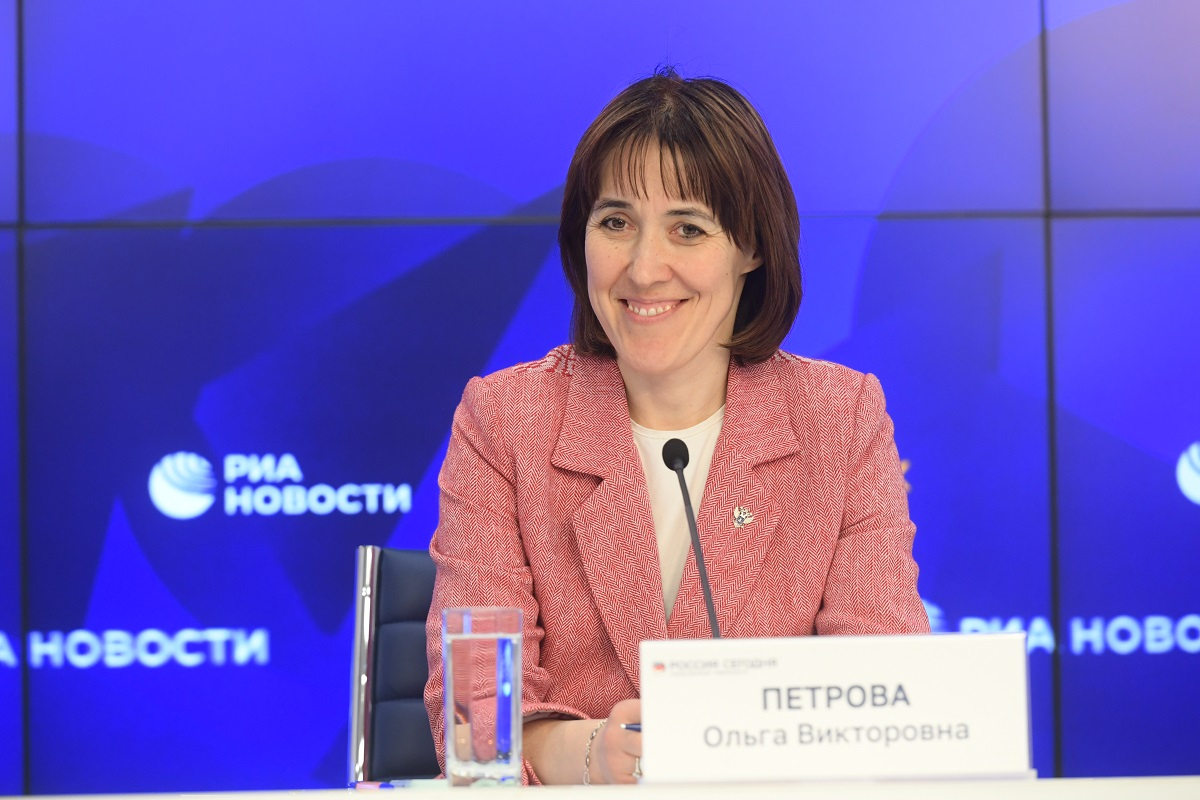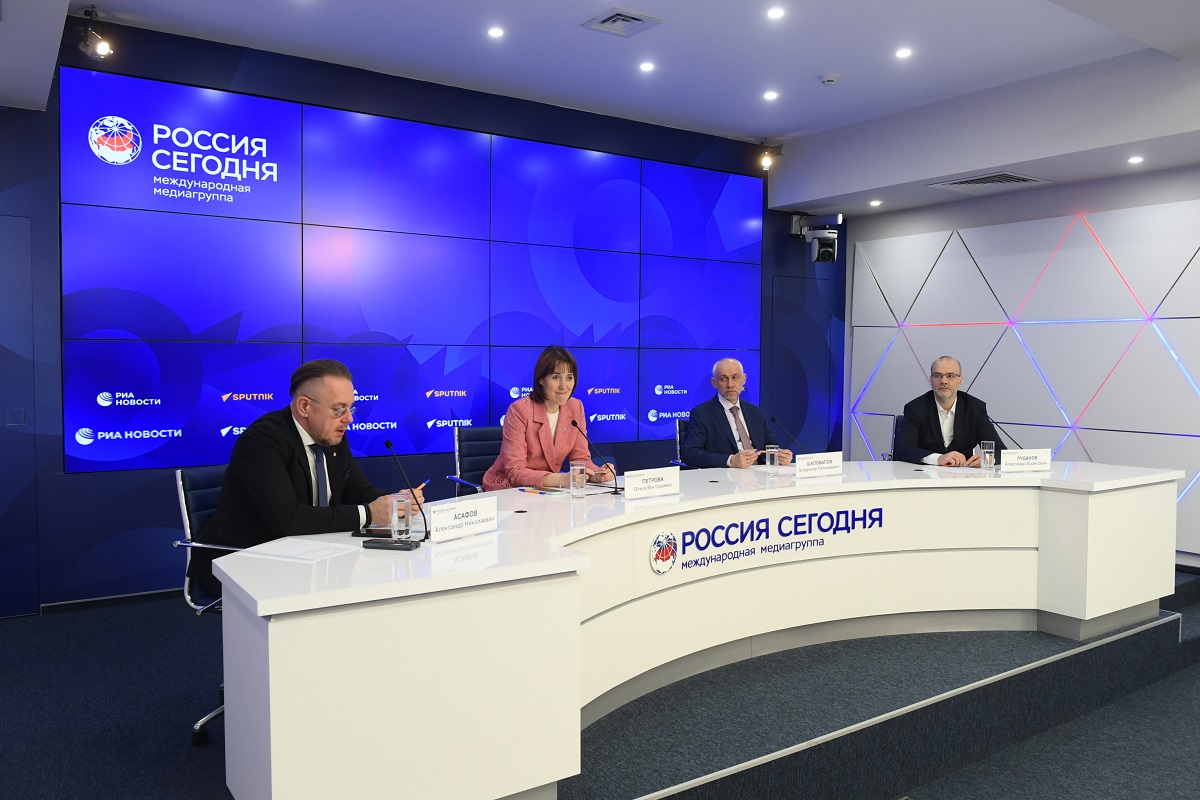Marina Lavrikova: One of the tasks of higher education is the formation of a citizen
Representatives of Russian higher education institutions and education experts have discussed the concept of a new course titled "Fundamentals of Russian Statehood" and the importance of its implementation in the education system. The expert discussion was held as part of a round table at Rossiya Segodnya International Media Group.
The discussion was attended by: Olga Petrova, Deputy Minister of Science and Higher Education of the Russian Federation; Marina Lavrikova, Senior Vice-Rector for Academic Activities at St Petersburg University; Aleksandr Sokolov, Governor of the Kirov Region; Andrey Polosin, Professor at Lomonosov Moscow University and Research Supervisor of the DNA of Russia project; Vladimir Shapovalov, Deputy Director of the Institute of History and Politics of Moscow State Pedagogical University; and political scientist Aleksandr Rudakov.
The study of the fundamentals of Russian statehood is an important aspect of education and the development of students. Currently, the DNA of Russia project, a large-scale project, is being implemented throughout the country. It is aimed at developing the "Fundamentals of Russian Statehood" course and implementing it into the academic programmes of higher education institutions. On behalf of the President of Russia, such a course will appear at Russian universities as early as the next academic year.
Olga Petrova, Deputy Minister of Science and Higher Education of the Russian Federation, emphasised the importance of combining the efforts of the state and the scientific community to develop and introduce the new course. Not only will such an approach improve the quality of the project, but it will also fully ensure students’ understanding of the fundamentals of Russian statehood and the common ideals, aspirations and goals of the state and society.
Andrey Polosin, Supervisor of the DNA of Russia project, spoke about the content of the course. It will be designed in accordance with the recommendations of teachers. It consists of five units through which students will be able to immerse themselves in the concept of Russia as a state, country, people, and cultural phenomena. They will be able to fully understand the civilisational nature of the Russian state, the worldview complex, the organisation of the political system, and system solutions that ensure the development of Russian civilisation as a state. A separate unit will be devoted to: reviewing the challenges facing all of humanity today; and determining how Russia is acting in this complex system of modern challenges. According to the creators of the course, such approach will enable students to build an individual trajectory of their development to solve the problem they are interested in solving using the skills and knowledge acquired during the training.

According to Marina Lavrikova, Senior Vice-Rector for Academic Activities at St Petersburg University, higher education today is not only a tool for gaining knowledge, but also the most important tool for the socialisation of young people.
Higher education has a global goal, to form a person’s understanding of how our state and society are arranged. One of the key tasks of the education system is therefore conscious formation and socialisation of a citizen.
Marina Lavrikova, Senior Vice-Rector for Academic Activities at St Petersburg University
’This is important at all levels of education, from school to university, and beyond. St Petersburg University, the oldest university in Russia, turns 300 next year. It is one of the leaders in the national education system. Of course, we understand the significance of this project and are actively preparing to teach the «Fundamentals of Russian Statehood» module in the new academic year,’ said Marina Lavrikova.
She also noted that professionals from various fields were involved in this process. Philosophers, political scientists, sociologists, historians, lawyers, economists of St Petersburg University took part in the development of the course. ’Despite the fact that the academic programmes of universities include courses in philosophy, sociology, and the history of Russia, a separate interdisciplinary module is needed to form students’ comprehensive ideas about Russian statehood,’ emphasised Marina Lavrikova.
The University is included in the work on the formation and implementation of the "Fundamentals of Russian Statehood" course in the degree programmes of St Petersburg University. Thus, the University hosted a scientific and methodological conference organised by the DNA of Russia project with the support of the Ministry of Science and Higher Education of the Russian Federation and the Russian society "Znanie". The conference was dedicated to discussing the content and structure of the course on the fundamentals of Russian statehood in higher education institutions of the country.
St Petersburg University, the oldest university in Russia, was founded on 28 January (8 February) 1724. This is the day when Peter the Great issued a decree establishing the University and the Russian Academy of Sciences. Today, St Petersburg University is an internationally recognised centre for education, research and culture. In 2024, St Petersburg University will celebrate its 300th anniversary.
The plan of events during the celebration of the anniversary of the University was approved at the meeting of the Organising Committee for the celebration of St Petersburg University’s 300th anniversary. The meeting was chaired by Dmitry Chernyshenko, Prime Minister of the Russian Federation. Among the events are: the naming of a minor planet in honour of St Petersburg University; the issuance of bank cards with a special design; the creation of postage stamps dedicated to the history of the oldest university in Russia; and the branding of the aircraft of the Rossiya Airlines to name just a few.
According to the participants in the round table, hundreds of Russian universities, thousands of scholars, and the entire community of teachers representing the humanities and social sciences took part in the preparation of the new course. The ’Fundamentals of Russian Statehood’ course is planned to be included in the academic programmes of all higher education institutions in Russia. It will form students’ understanding and knowledge of Russia from the point of view of its historical past, present and future. Depending on the specialisation and the academic programme, a different degree of immersion in the fundamentals of Russian statehood will be formed. The experts noted that similar courses are also taught in other countries. It is also necessary to form in Russian students an idea of the principles underlying the Russian statehood, administration system and the values of society.




